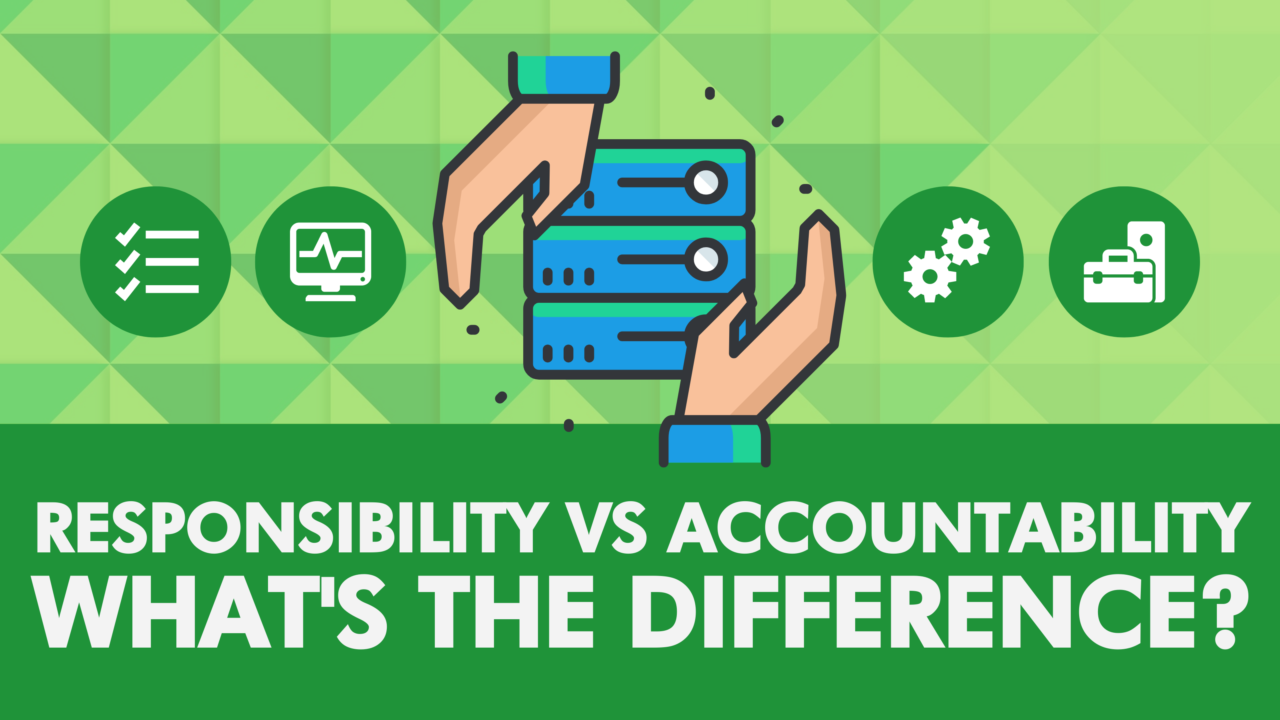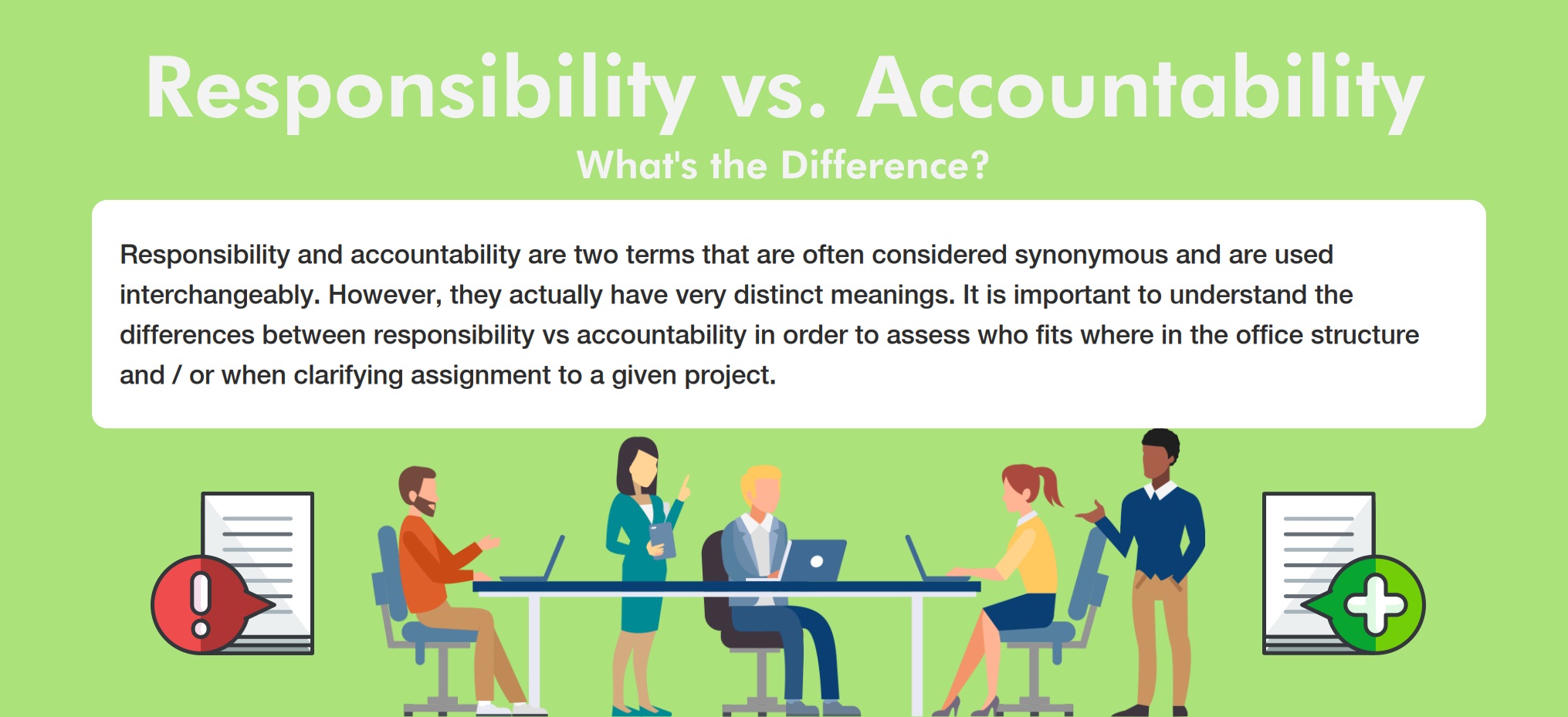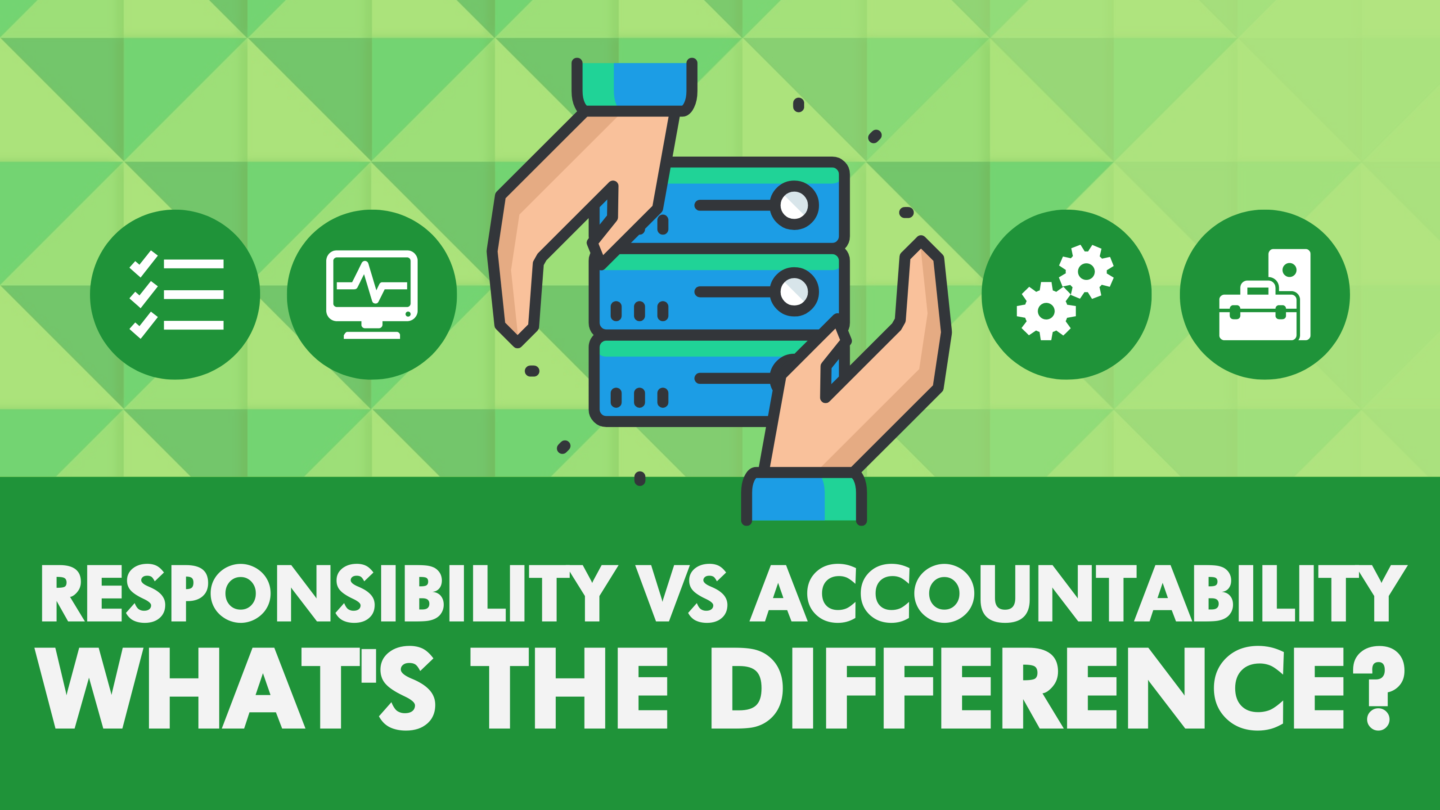
Responsibility vs Accountability – What’s the difference?
Responsibility and accountability are two terms that are often considered synonymous and are used interchangeably. However, they actually have very distinct meanings. It is important to understand the differences between responsibility vs accountability in order to assess who fits where in the office structure and / or when clarifying assignment to a given project.
What is responsibility in the workplace?
What are some aspects of responsibility in the workplace?
- Responsibility is essentially the duty to respond to and complete tasks.
- It can be shared among a team – multiple people can be responsible for achieving a specific outcome by working on the same task, or have different tasks they are responsible for that lead to the same goal.
- Responsibility cannot technically be assigned to someone. A person must choose to take responsibility for something themselves.
- It is specifically task-focused – it can include: who has what role, what that entails, and what must be done in order to be successful.
What is accountability in the workplace?
How is accountability in the workplace defined?
- Accountability is literally the ability and/or duty to report (or give account of) on events, tasks, and experiences.
- Accountability for a specific task, process, service, etc. should be assigned to just one person
- If more than one person is accountable for the result of a task, there is a much higher risk that each person will think the others are taking charge, leading to no one taking accountability.
- Tasks should be assigned based on an individual’s skills and competencies.
- Whereas responsibility is an ongoing duty to complete the task at hand, accountability is what happens after a situation occurs.
- It is how a person responds and takes ownership of the results of a task.
- Being accountable often means that the person is liable to face consequences from some authority if the task isn’t completed successfully
- However, not always – sometimes the accountability can also be at play when the “accountable” person communicates the objective isn’t being reached.
Key Differences of Responsibility vs Accountability
Now that we have defined both responsibility and accountability, let’s summarize the key differences.
| Responsibility in the Workplace | Accountability in the Workplace |
| The duty to complete tasks; not doing so is a failure of responsibility | The duty to give an account of tasks after they are completed |
| Ongoing while final goal is being worked towards | Happens after a situation occurs ( or in the form of status update) |
| Can be shared among a team; many people can have the same task, or different tasks that work towards the same goal | Should be assigned to just one person to avoid thinking someone else will be doing the job |
| Specifically task-focused | Specifically results-focused |
| Cannot be assigned to someone. Each person must take responsibility on their own (more behavioral) | Is assigned (ideally to one person) – they are held accountable for results and potential consequences of not reaching desired results |
Download our infographic to help explain the differences between responsibility and accountability in your organization!

Responsibility vs. Accountability
Send download link to:
Responsibility vs Accountability – 3 examples
We’ve defined responsibility and accountability in the workplace and specified some key differences. Now, let’s take a look at some examples that further illustrate those key differences.
1. Doing chores
We can feel responsible for doing household chores without having accountability. If someone who lives alone has the responsibility to do their laundry, but fail to do so, they have no one to answer to but themselves. They will be responsible, but they won’t face any consequences from an authority.
However, a parent could make their child accountable for the laundry getting done. In this case, if the laundry doesn’t get finished, the child would have to explain (give an account of) why the task hadn’t been completed to their parent (the authority) and could face potential consequences.
2. Customer service
Suppose your company has an online help portal where customers can ask questions, and get responses in real time from customer service representatives (CSRs). It is the responsibility of the CSRs to respond to these questions – that is their task, working toward a goal of, for example, a response time of three minutes or less per question.
In this example, accountability shouldn’t lie with the multiple CSRs all doing the same task with the same goal in mind – instead, it should be assigned to one person (perhaps a supervisor or manager) who would be accountable for the response time. In this case, they wouldn’t necessarily face consequences if the goal wasn’t met – accountability for this situation could be to inform a higher authority (their boss) that the goal wasn’t being achieved.
3. Stockperson
In some cases, someone can both have responsibility for something, and also be held accountable for it. Consider this example: an employee is responsible for keeping the storage room stocked with computer paper. They are aware that this is their job, and will continue to bring more paper to the room before it runs out. As this is an ongoing task, they are merely responsible for it – they will not be held accountable until the task is completed. In this example, that could be if the employee fails to stock the room and has to face consequences for it.
Final Thoughts on Responsibility vs Accountability
While they seem to be very similar terms, there are key distinctions when comparing responsibility vs accountability in the workplace. It’s important to know the differences in order to ensure that the right people (and number of people) are assigned to specific tasks, and also to know who is responsible for what, and who will be held accountable for certain outcomes.
Remember: you can take responsibility, and you can hold someone accountable.




